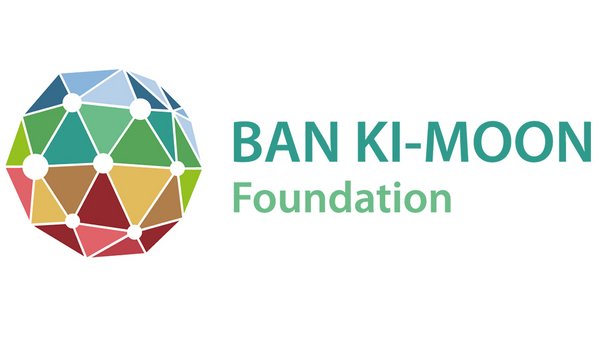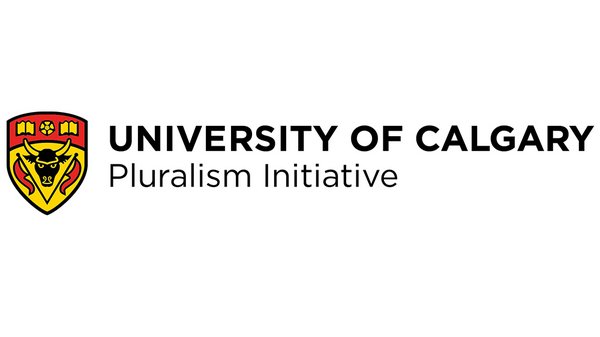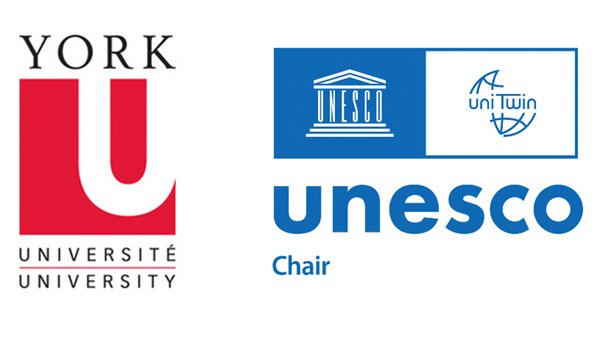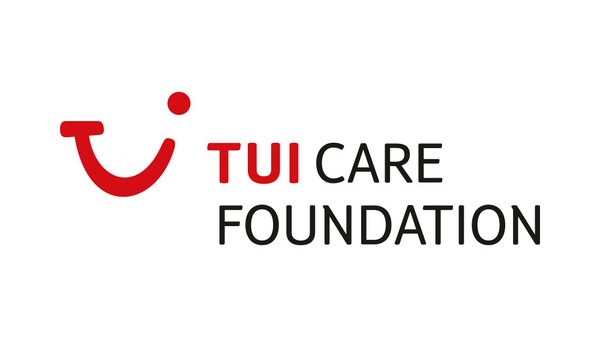-
Topics
backTopicsOur programs create spaces where open-minded leaders can gather for breakthrough conversations on pressing global issues – each aligned to one of the following pillars:
-
Events
backEventsExplore the variety of events Salzburg Global hosts within Austria and in the rest of the world. Learn more about our programs and what else happens at Schloss Leopoldskron.Upcoming EventsFeb 05 - Feb 07, 2026Peace & JusticeDisruption and Renewal: Charting the Future of the International Rule of Law, Democracy, and PluralismSalzburg Cutler Fellows Law ProgramApr 13 - Apr 18, 2026CultureCreating Futures: Rethinking Cultural Institutions, Infrastructure, and InvestmentCulture, Arts and Society
- Insights
-
Fellowship
backFellowshipSince 1947, more than 40,000 people from over 170 countries have participated in Salzburg Global's sessions. Collectively, these alumni are known as Salzburg Global Fellows.
-
About Us
backAbout UsSalzburg Global is an independent, non-profit organization committed to creating spaces that overcome barriers and open up a world of better possibilities.Our Approach
-
Support Us
backSupport UsYour generosity helps us gather open-minded leaders for breakthrough conversations, while creating space for dialogue that overcomes barriers and opens up a world of better possibilities.
- Donate
Education for Tomorrow's World
Part of Salzburg Global's Education Pillar
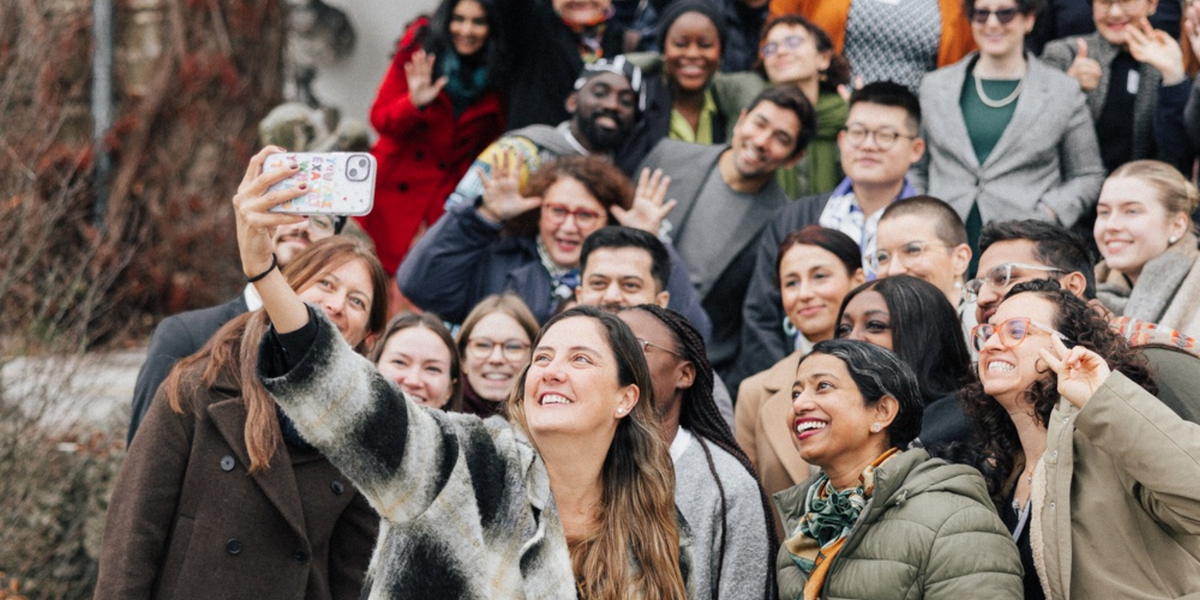
Our Purpose
The Education for Tomorrow’s World program informs new approaches to learning, skills and inclusion for radically different societies.
Topical programs and regional workshops address emerging challenges and opportunities for education, assessment and the future of work, generating strategic recommendations and practical projects to recalibrate and reform current systems.
Why It Matters
Education and labor issues have featured prominently in Salzburg Global's program portfolio since the 1950s.
Recognizing that the way we learn and the future of work will change beyond recognition in the coming decades, Salzburg Global has scaled up its commitment to explore these topics through a multi-year program on Education for Tomorrow's World.
New technologies are taking us faster towards a post-industrial world. Current teaching systems and metrics are being called into question.
Young people, in particular, urgently need skills and support networks to realize their potential and forge individualized pathways for learning and work. Special attention needs to be paid to neglected talent, especially among marginalized groups, exploring how best to identify and nurture this otherwise wasted potential.
Relearning learning is critical to energize truly entrepreneurial societies. This will go far beyond education ministries to involve innovators, neuroscientists, data analysts, and students themselves.
As well as critically engaging with the "supply side" of education, we must review the "demand side" – how to meet immediate needs to fill current jobs, identify new talents suited to new jobs, and promote access and diversity in a rapidly changing labor market.
This program, launched in 2015, directly supports action to implement the 2030 Agenda for Sustainable Development (particularly Goal 4).
It recognizes that the digital and life sciences revolutions are radically changing assumptions and systems around education, jobs, families, health, and ethics. Managing for change requires personal and organizational resilience, and for new technologies to be rooted in a deep understanding of human needs and wants.
Our Publications
Fellows who have participated in Salzburg Global's Education for Tomorrow's World sessions have repeatedly come together to co-create "Salzburg Statements".
These publications address different topics specific to the program at which they were drafted. They help raise awareness of vital issues and serve as an advocacy tool to share with policymakers and people of influence.
In December 2024 an international group of 55 educators, policymakers, and researchers met in Salzburg for a program looking at “The Future of Teaching”. One of the themes explored in the program focused on collective action and teacher leadership as levers for equitable education reform.
The Salzburg Statement on Collective Action for Education Equity reflects the group's shared aspirations, lessons learned from decades of persistent global challenges, and the mindset shifts necessary for sustainable transformation in education systems worldwide.
According to the National Democratic Institute, national elections are expected to take place in at least 64 countries during 2024. This comes at a time when many societies around the world are reporting increasing levels of polarization.
In November 2023, a group of dedicated educators and citizens participated in the Salzburg Global Center for Education Transformation program on "Civic and Civil Education: Identity, Belonging and Education in the 21st Century". Their objective was to reimagine the role education can play in democratic societies. Fellows tackled questions about identity, curriculum for activists, empathy and hope development, polarization, and misinformation and disinformation.
One of the session's outputs was The Salzburg Statement for Civic and Civil Education. This statement emphasizes the vital role of education in democratic societies and offers suggestions for fostering democracy, social movements, and challenging political, economic, and social systems.
In May 2022, 51 Salzburg Global Fellows from 20 countries came together to ask bold and challenging questions about education:
- What kind of societies are we aiming for, and how could transformed education systems help us to get there?
- What would an education system look like that supported all learners to build the capabilities, skills, and knowledge they need to transform the world?
- What do we need to change within ourselves to facilitate this process?
- What are the conversations and questions that are required to initiate long-term transformation?
The first output of this collective effort is the following call to action for policymakers, learners, educators, and parents to intervene in education systems to bring about fundamental and lasting transformations.
This is not a blueprint, as every system will transform in different ways, but it is a call for everyone who has power, agency, and voice to use them to build the education systems needed for human and planetary flourishing this century.
Social and emotional skills are key human capabilities that allow individuals to manage their emotions, work with others, and achieve their goals. They are crucial for the well-being and success of every child and adult, and for the future of our societies and economies.
In a complex, fast-moving world, it is imperative that we equip all learners for new challenges and opportunities.
Evidence shows multiple long-term benefits from embedding Social and Emotional Learning (SEL) opportunities in education in both formal and non-formal contexts.
SEL can contribute to more inclusive, dynamic, and productive schools, communities, and workplaces, and can, in the long term, save governments money and accelerate productivity.
Salzburg Global Fellows from the December 2018 program Social and Emotional Learning: A Global Synthesis believe that global and national education policies, practices, and systems should put SEL at the center of “whole person” development from birth.
In today's interconnected world, the ability to speak multiple languages and communicate across linguistic divides is a critical skill. Even partial knowledge of more than one language is beneficial. Proficiency in additional languages is a new kind of global literacy. Language learning needs to be expanded for all, young and old.
However, millions of people worldwide are denied the inherent right to maintain, enjoy, and develop their languages of identity and community. This injustice needs to be corrected in language policies that support multilingual societies and individuals.
Participants of Salzburg Global's session on "Springboard for Talent: Language Learning and Integration in a Globalized World" called for policies that value and uphold multilingualism and language rights.
Social and emotional skills are crucial for the well-being and happiness of every child. They are relevant to educational outcomes, employability prospects, and addressing the kinds of global challenges the Sustainable Development Goals seek to address.
Social and emotional skills can help societies meet the needs of all their young people, their families, and communities, and, in the long term, save governments money. Despite this, there is still much more focus on cognitive and academic skills development in schools and higher education.
Participants of the Salzburg Global session “Getting Smart: Measuring and Evaluating Social and Emotional Skills” (December 4 to 9, 2016) believe that global education policy and practice now need to focus on the development of the whole person from earliest childhood to emerging adulthood.
Rising investment in education around the world increases expectations that national systems will prepare more learners for higher levels of education, employment, and careers, and that assessments will generate better data on system performance, benefits of public investment, and ways to achieve success in educating each learner.
However, despite much excellent practice, assessments too often reinforce assumptions and expectations about learners’ capabilities rather than seeking to identify their full potential.
Assessments and data often struggle to capture the essence and value of cultural differences, which are critical to each community and country’s identity.
When based on narrow concepts of achievement and performance, they rely too heavily on simplistic tasks, disempower learners and teachers, and contribute little to improving pedagogy and professional development. Most current approaches reinforce education systems where gaps are widening and goals are narrowing.
Participants at Salzburg Global’s session on "Untapped Talent: Can Better Testing and Data Accelerate Creativity in Learning and Societies? "(December 12 to 17, 2015), urged all key stakeholders in the integrated education system to join together to help address the following challenge: How can we accelerate demand for improved assessment and use of data to progress toward more equitable and personalized education systems that value a wide range of goals and benefit all learners and society?
All children deserve the best start in life. Without commitment to human development, there can be no sustainable development.
Investing in young children is critical for communities to flourish and nations to prosper. This calls for political will, public demand, adequate funding, and the active engagement of families, communities, business, and government.
Children's ability to survive and thrive depends on the well-being and competence of those who care for them.
Holistic frameworks for the period of development from prenatal to eight years of age require public-private coordination on poverty reduction, maternal and child health, education, social protection, gender equality, workforce policies, water, sanitation, energy, and housing.
Participants at Salzburg Global's session on "Designing a Social Compact for the 21st Century: Early Childhood Development and Education (ECDE)" (April 15-18, 2015) therefore urged the international community to address the needs of young children and families across the upcoming Sustainable Development Goals (SDGs) and commit to coordinated planning between sectors and adequate financing.
Building on the health and nutrition goals, they called for the adoption of the proposed Learning Goal target: "By 2030, ensure that all girls and boys have access to quality early childhood development, care and pre-primary education so that they are ready for primary education."
Additional Listening and Viewing
As a result of the Education for Tomorrow's World program, we've had the opportunity to produce several outputs with different program partners, ranging from podcast series to online webinars.
We've listed some of these outputs below, along with interviews we've recorded with Fellows during past sessions.
Following the May 2022 session, "Education Futures: Shaping a New Education Story," we partnered with The Learning Future Podcast for its seventh season.
Over 20 episodes, Salzburg Global Fellow and CEO of the Learning Future, Louka Parry, hosts a series of conversations "that aren't afraid to leave behind past preconceptions to allow for real unhindered bold change and innovation in learning and education - both practical examples and plans for the future."
Many of these conversations are with Salzburg Global Fellows from different Education sessions. All the conversations offer fascinating insights into the case for educational transformation.
- Education Transformed: Dominic Regester, Director, Salzburg Global Center for Education Transformation
- Enhanced Potentiality: Dr Anantha Duraiappah, Director, UNESCO Mahatma Gandhi Institute of Education for Peace and Sustainable Development
- Learning Economy: John Goodwin (Executive Chairman of the Board of Directors, LEF) and Chris Purifoy (CEO of Learning Economy)
- Education World Forum: Gavin Dykes, Programme Director, Education World Forum
- Centring Child Wellbeing: Frank Oberklaid, Foundation Director of the Centre for Community Child Health, The Royal Children's Hospital Melbourne
- Getting Smart: Tom Vander Ark, CEO, Getting Smart
- Complexity Theory: Anne Knock, Director of Leadership and Culture, The Learning Future
- Systems of Empowerment: Franco Mosso, CEO and co-founder, Enseña Peru
- Self-Transformation for Systemic Change: Romana Shaikh, Chief Program Officer, Kizazi
- Co-generational Design: Eloïse Haylor (Network and System Change Lead, Big Change) & Aliyah Irabor-York(Founder of Pupil Power)
- HundrED's Innovations for Flexible Learning: Lasse Leponiemi, Co-Founder and Executive Director, HundrED
- Approaches for Flourishing: Alex Battison, Senior Deputy Head, Lord Wandsworth College
- Cultivating Fitness, Flow and Learning: Dido Balla, Head of Education, Goldie Hawn Foundation
- Curiosity is a Superpower: Jigyasa Labroo, Co-Founder and CEO, Slam Out Loud (SOL)
- Meaningful & Memorable Public Work: Olli-Pekka Heinonen, Director General, International Baccalaureate Organization
- Redefining Good-Behaviour and Engagement: Professor Stephanie Jones, Gerald S. Lesser Professor, Child Development and Education, and Director, EASEL Lab, Harvard Graduate School of Education
- Facilitating Joyful Adaption: Dr Cathrine Floyd, Director of Ideal Learning Initiatives, Trust for Learning
- Nomad Learning to Nautical Teaching: Sal Gordon, Head of Teaching and Learning, Green School Bali
- Defusing and Decoding AI for Maximum Fulfillment: Dylan Wiliam, Emeritus Professor of Educational Assessment, Institute of Education, University of London
- Compassion in Learning: Ryder Delaloye, Associate Director for SEE Learning® (Social, Emotional, and Ethical Learning) Program, Center for Contemplative Science and Compassion-based Ethics
In October 2020, we hosted two webinars open to the public on “SEL and Social Justice”.
This online program looked at the intersection of Social and Emotional Learning (for example developing skills for self-regulation, emotional regulation, empathy, compassion, critical enquiry) and Social Justice (addressing inequalities and inequities), through the lenses of SEL and inclusive pedagogies, and SEL and assessment.
In partnership with WISE, the second part of the Education Disrupted, Education Reimagined series explored systemic responses to the COVID-19 crisis.
They unpacked what had worked, what had not, and what could be reimagined not only for the coming academic year but also for the future of education and learning.
In April 2020, we collaborated with WISE to host a virtual convening titled “Education Disrupted, Education Reimagined”.
A conference in five parts, this joint WISE – Salzburg Global virtual convening unpacked the consequences of COVID-19 on the traditional school model and considered how we best optimize this time of crisis to rapidly innovate and embed system-wide change in our schools and education systems.
Day one of the event – April 15 – looked at how leaders, policymakers, and practitioners around the world are currently responding to the COVID-19 crisis. Day two of the event – April 16 – considered the opportunities the current situation presents to accelerate system-wide innovation for the future.
This Salzburg Global session, held in December 2018, brought together key stakeholders across sectors, regions, and cultures to share and critique a range of policies and practices, analyzing what has or has not worked to develop scalable recommendations for future educational reform.
This Salzburg Global session, held in 2016, built on the outcomes of our 2015 session on “Untapped Talent: Can Better Testing and Data Accelerate Creativity in Learning and Societies?”, which explored the need for new approaches in assessment science, practice, and predictive analytics.
This Salzburg Global session, held in 2014, brought together leaders from institutions serving marginalized populations, policymakers, and researchers to develop a platform to address these institutions’ common challenges and capitalize on their strengths.
Support Our Work
As a nonprofit organization, we rely on your generosity and support to gather open-minded leaders for breakthrough conversations.
Donations, no matter the size, help us create space for dialogue that overcomes barriers and opens up a world of better possibilities.


